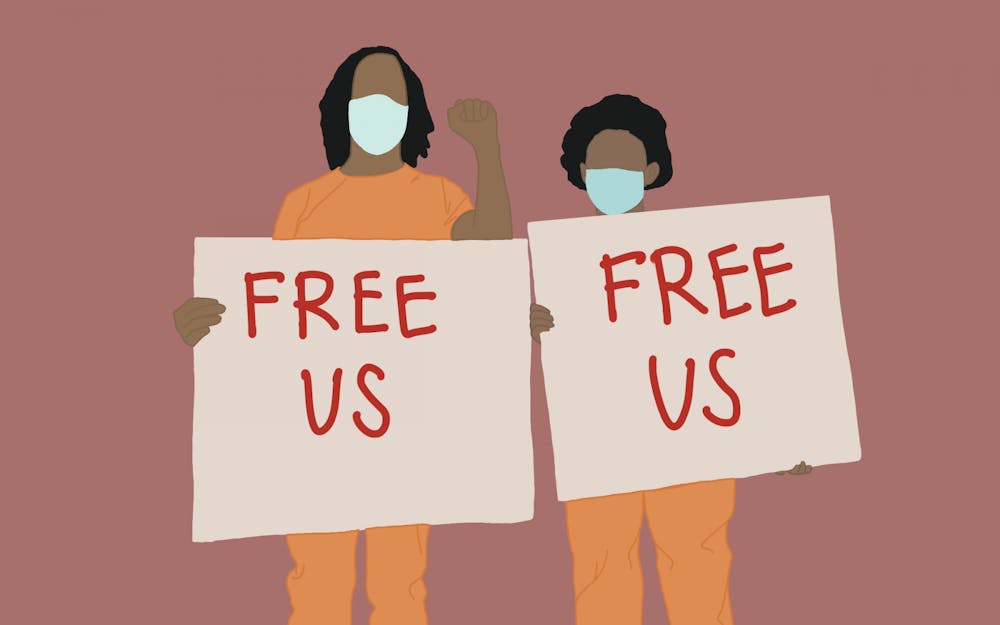According to The Guardian, Rikers Island is currently under dangerous and deadly conditions. There is a lack of toilets in the prison forcing inmates to relieve themselves in bags. There have been multiple counts of deaths in the prison and overcrowding.
No one deserves to be treated inhumanely, not even prisoners.
According to The Guardian, Rikers Island is one of the largest and most notorious prisons in the world, known for its inhumane conditions and high inmate numbers.
ICYMI: Black Voices: Black students suspended for protesting against Confederate flags
Rikers Island is just one piece of the prison industrial complex and part of a bigger problem. People should think about other means of implementing safe ways in order to reduce harm besides captivity.
The abolishment of slavery by the 13th Amendment was the catalyst to what we now call the “prison industrial complex.” The 13th Amendment only abolished slavery if you had never committed a crime.
The origins of prisons and jails began in America as early as the 1700s. According to the U.S. Department of Justice, prisons were not originally intended for punishment. They were essentially detention centers where people would wait until they received a punishment, sometimes resulting in death.
After slavery was abolished, the U.S. government made a loophole by ensuring Black people could still be slaves by putting them in prison. Other aspects that ensured the keeping of Black Americans in prison were Jim Crow laws and “The War on Drugs'' which eventually led to mass incarceration. Decades later, people are still suffering from the effects of the three.
People may think if criminals don’t go to jail, where will they go? How will they pay for their crimes? How will people be safe? Some may even think people go to jail to learn from their mistakes.
While all of these are sound reasons, let's take a look at reality. According to The U.S Department of Justice, 650,000 prisoners are released every year, and ⅔ of those prisoners will be rearrested within three years of release.
There are also people in jails who have not committed a crime.
More: Black Voices: Find the murderers of Jelani Day
Kalief Browder was 16 when he was accused of stealing a book bag but was never convicted. He was detained at Rikers Island as an adult for the next three years and couldn’t be released because he couldn't afford bail.
Browder spent two of those three years in solitary confinement. Two years after his release, he died by suicide after suffering from post-traumatic stress disorder because of the horrors he experience within the Rikers Island cells.
Prison affects you mentally and physically, and this physical and mental stress often follows you even after you’ve left prison. This is not an isolated event specific to Rikers Island. This is what all prisons do to you, especially to Black and Brown people.
IU sophomore Minnie Arthur is close with people who were involved with the prison system. Her brother’s dad was in prison for eight years and had an associate who waited several years before receiving an actual prison sentence.
Arthur said she feels that people in prison should have basic human rights because their freedom being taken away is more than enough punishment.
“Society puts so much stress on people to punish them,” Arthur said. “It should be a place where they can recreate themselves and have the ability to actually better themselves.”
The idea that people in prisons and jails deserve the treatment and conditions they are living in is disgusting. American prisons were not formed as a means to rehabilitate people; they were meant to keep people captive, produce labor and make capital.
Jails and prisons should not be places for people to be sent to pay for the harm they did only to be released and commit the same crime that got them there in the first place, nor should they be used for punishment in general.
It’s time that people begin to think about other ways to reduce harm and keep people safe.
It’s time to take the words “prison” and “jail” out of our vocabulary.






